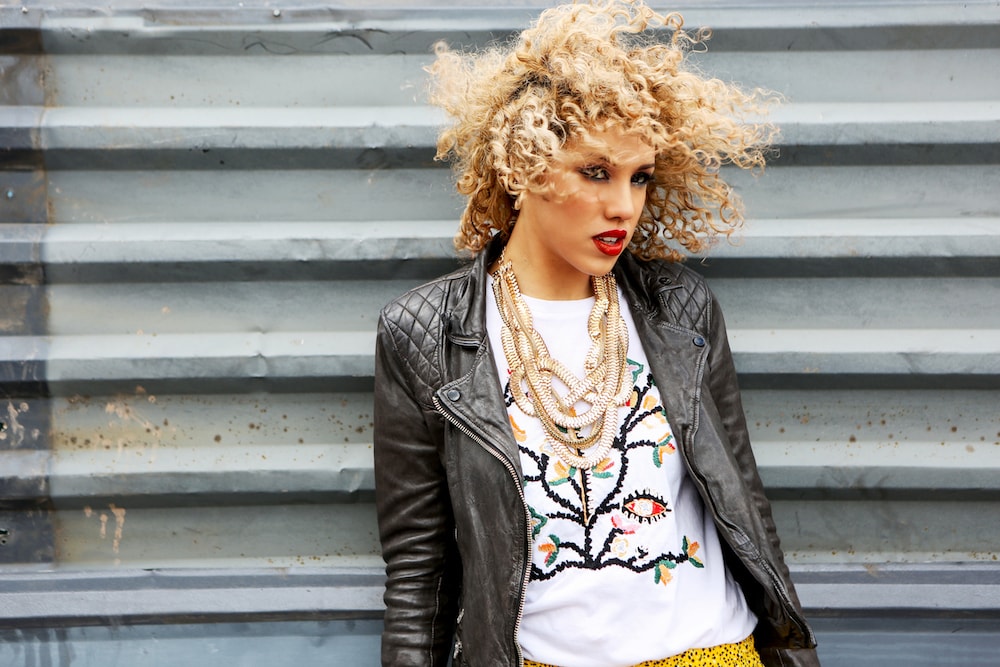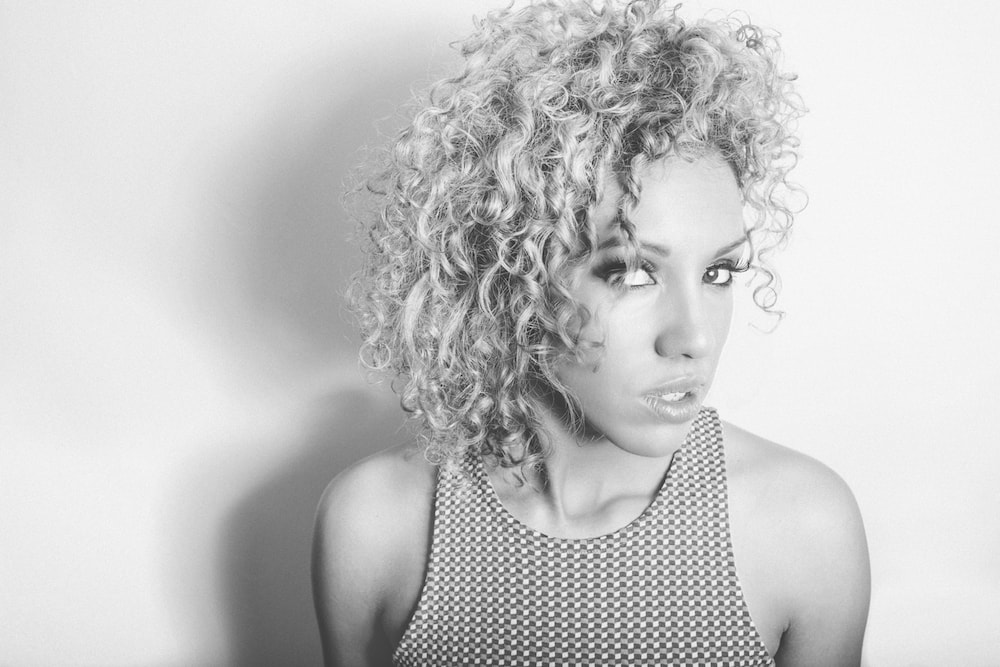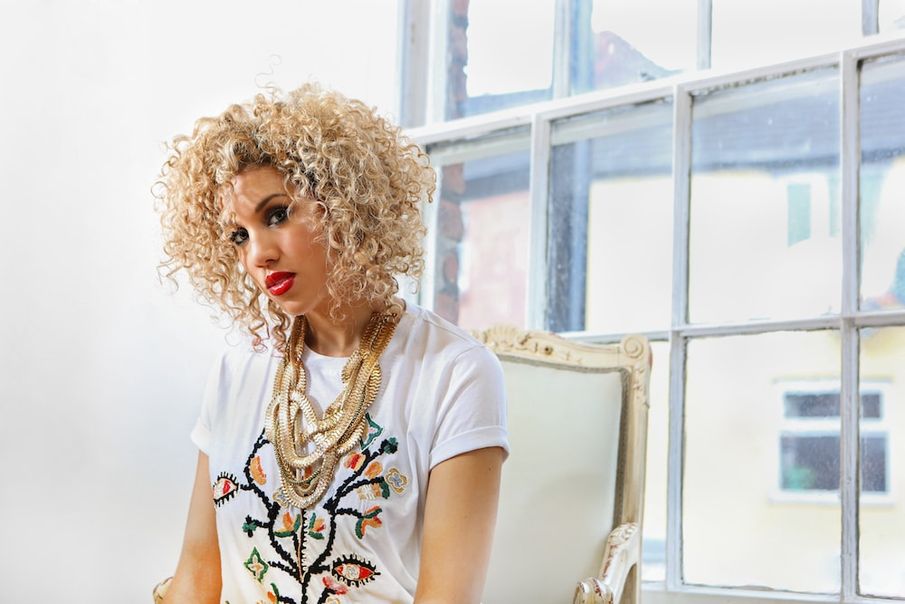This talented singer-songwriter balances her burgeoning musical career with her 'other job' - being a trained counsellor
I’m from Manchester. My grandparents were musicians who played in tea dances in the 1940s. My nana played keyboard and my grandfather accompanied her on the drums. My parents were both in a band too, so I grew up around sound checks and was familiar with the microphone. I studied performing arts from 16 to 18 - singing, dancing, acting – an amazingly fun experience, but I didn’t have the confidence to step out and have a solo singing career. I still hung around musicians and ended up being part of the choir for Damon Albarn’s Gorillaz for five dates in Manchester, but it was not a full time job.
Now in my early 30s, I want to do music as a job and I’m very serious about it. I’ve launched as a solo artist, working with a label in the northern quarter of Manchester called Light. It’s been very cool.
I’m also a trained counsellor.
When I was young I had a mission statement in life – I was deep for a young person! Mine was to bring inspiration, freedom and hope to myself and others, so with everything I did in life, I looked at that mission statement and said, 'Is this going to bring hope in my life or not?' I was always interested in psychology, and I promised myself I would go back and do a qualification in it. But actually, I had my first child, and that brought music to a halt. So I went back to college and did my training in counselling, which took about four years. I qualified as a young mum at home, so I did essays while the child had naps! I still applied my mission statement of freedom in myself and in others.
My writing came from listening to these amazing and hard stories in the counselling room, and it fired meMy parents split. It was a very difficult time and it rocked me up, so I sought counselling myself during that period. In fact, for *happiful* readers, I want to say that experiencing a really hard time in life can bring amazing changes, and make you a stronger person, because you’ve been through that stuff. I see that time as a blessing, but at the time it was horrendous. My father-in-law passed away. My nana, the great inspiration in my life, died as well. Having therapy was amazing for me. It was a safe place to go to share and feel.

The world of music and the world of counselling crosses over easily with me.
I spent a couple of years working as a counsellor in the NHS, and I suddenly got this urge to start writing songs again because I was surrounded by all these amazing stories. My writing came from those stories in the counselling room, and it fired me.
Once I played my new songs live, and got such a reaction from the audience, I wanted to create a website where people could go to and get further help. That’s the Lily-Jo Project. It’s an online self-help resource designed to help people help themselves and make those first steps into healing. I cover topics such as eating disorders, depression, low mood, anxiety, self-harm, child trauma, grief, and loss.
It’s great that I’ve been able to marry the two worlds: music and therapy.
I’m not surprised people come forward after my gigs and talk about their issues after hearing songs such as Bring Me Back. Mental health is becoming less and less stigmatised. Look at Twitter, it’s full of people speaking out.
I’m not surprised musicians suffer from mental health issues like anxiety and depression. This profession is such a rollercoaster
I’m also not surprised that many musicians suffer from mental health issues like anxiety and depression. This profession is such a rollercoaster. I tour with a band called LZ7 who support people like Kasabian in 30,000-seater arenas in Holland. All day you build up to the gig - the nervous anxiety, the energy coursing through you. Then you go on stage and get a massive high. I just can’t describe it. Afterwards you fly home and go back to reality. After a day or two I hit a low and think, so what now? Where’s next high coming from? It’s a rollercoaster and it’s pretty intense. And that’s just me on a part-time basis.
What I find helps is a really strict timetable, which is great for depression anyway. I do a timetable of what I’m going to do at 10am, 11am, noon. I used to do this with my own clients in order to make a plan for the day. When I’m not on tour, I follow a strict regime so I don’t have the feeling of ‘What now?’ or ‘What do I do with my life?’, which is when the panic sets in. I structure myself wisely. It’s really helpful to avoid that feeling of just wanting to sleep all the time.

I’m touring in March around the UK and Ireland with former X-Factor winner Ben Haenow. I’m his support act, opening each show with a half hour set. I’m super excited as it’s my first UK tour in my own right and I’m going with my guitarist, who’s also my husband. We’re going to have a great adventure. I’m really looking forward to seeing how that audience of (mostly) teenage girls and mums connect with my message.
My website is also one-year-old in April, so I want to develop it further and touch upon more subjects like OCD, bullying and PTSD. I’m also hoping to get charity status in the next few months. The future looks good.
Want to know more? Visit The Lily-Jo Project


Comments